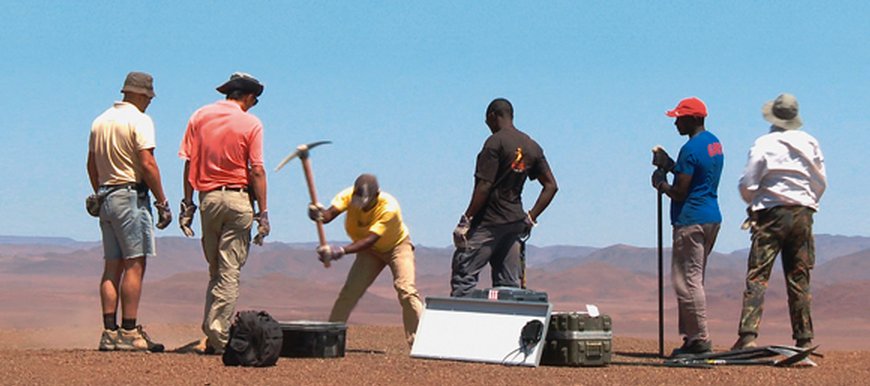Synopsis - from www.amanofscience.de
Ernst von Rebeur-Paschwitz, the founder of modern seismology, was born 150 years ago. With his discovery of the long-range effect of earthquakes, he laid the foundation for our modern understanding of the Earth.
In April 1889 Tokyo was rocked by a major earthquake. Nearly 9,000 km away, on seismometers in Potsdam and Wilhelmshaven, Rebeur-Paschwitz registered the impact of this earthquake. He happened to read in the newspaper that an earthquake in Japan had taken place on that day, and he recognized the connection. Until then, it was not known that seismic waves propagate through the whole earth. To get a better picture of our planet, Rebeur-Paschwitz suggested to measure earthquake waves at many points on the entire earth. He was way ahead of his time.
Shortly after his discovery, he contracted tuberculosis. Despite his serious illness, he continued to devote his life to science until he died at the age of 35 years. Despite his pioneering insights and ideas he remained almost unknown. Researchers worldwide are working on the implementation of his ideas, often without knowing the history of its discovery. The realization of his dream now seems within reach. Within seconds, data from a global network of monitoring stations converge in the computing centre in Potsdam. These data can help prevent the worst effects of an earthquake disaster and at the same time they are building blocks that help to understand the interior of our planet.
The film follows scientists in Strasbourg, Göttingen, Potsdam and in the desert of Namibia, who continue the work of Ernst Rebeur-Paschwitz and keep the knowledge of his discovery alive. Julien Fréchet discovered one of the original pendulums of 1889 in Strasbourg in a closet, which until recently was thought to be lost. Seismology is an ambiguous science because it draws its knowledge about our planet from earthquake waves, which can cause major damage.








![[Translate to English:] Torsten Sachs in front of a climate station on a field](/fileadmin/_processed_/3/9/csm__TorstenSachs_bearbeitet_GS_4a1365ef84.jpeg)

![[Translate to English:] left image flood at the Ahrtal: image from above, several houses are flooded; left image:: Heidi Kreibich;](/fileadmin/_processed_/4/4/csm_Bild2_9af0130e9f.png)



![[Translate to English:] Start der Vega Rakete](/fileadmin/_processed_/6/4/csm_20231201-kachel_Vega-VV23-launch_ESA-CNES-Arianespace_706716b68c.jpeg)









![[Translate to English:] Poster exhibition at the Brandenburg Hydrogen Day at the GFZ, some participants in the foreground](/fileadmin/_processed_/6/5/csm_Erster_Brandenburgischer_Wasserstofftag_GFZ_402fcec95e.jpeg)
![[Translate to English:] Group picture of the participants](/fileadmin/_processed_/9/4/csm_20231108_CAWa-Workshop-Tashkent_Gruppenbild_99ea779d8a.jpeg)

![[Translate to English:] [Translate to English:] Hörsaal](/fileadmin/_processed_/e/6/csm_H%C3%B6rsal_e21ac645fb.jpeg)


![[Translate to English:] The Delegations in the Historic Library on the Telegrafenberg. In the back there are from left to right, the Dutch Ambassador for Germany, Ronald van Roeden, the Dutch Minister for Education, Culture and Science, Robbert Dijkgraaf and the scientific director of the GFZ, Susanne Buiter.](/fileadmin/_processed_/d/b/csm_Kachel-2_9eba4b4212.jpeg)

